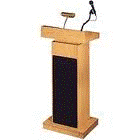
Discipline-Based Education Research Group Speaker Series
Date of this Version
11-13-2014
Document Type
Presentation
Citation
DBER Group Discussion on 2014-11-13
Abstract
Crouch et al (2004) posit that students will be more engaged by and learn more from classroom demonstrations when asked to predict the outcome of the demonstration and discuss it with peers. We tested this hypothesis in an experiment involving 116 students enrolled in an undergraduate astronomy class using an online survey and five video demonstrations. Students were randomly assigned to one of four conditions, including watching a set of videos (about convection, sun spots, and buoyancy) under one of Crouch’s three modes of presentation (observe, predict, and discuss) and a control condition which involved viewing different videos (about differentiation and phase changes). Students were asked to report their levels of engagement with each video immediately after viewing it and to answer knowledge questions related to the videos at the end of the survey. These knowledge questions were repeated in a follow-up survey administered one week later to test how well knowledge was retained. Results indicated no significant differences in the engagement between conditions except for social engagement, which as expected was highest in the discussion condition. Significant differences were found only for the knowledge questions related to convection, with significant differences between high and control conditions but not between control and low or medium conditions. This difference between the high and control condition remained in the one-week follow-up measure of knowledge for convection. Control students had watched a video pertaining to differentiation and knowledge of differentiation was highest in control condition at both time points.
Included in
Curriculum and Instruction Commons, Educational Methods Commons, Educational Psychology Commons


Comments
Copyright (c) 2014 Ryan Anderson, Shiyuan Wang, Lisa Pytlik Zillig, & Kevin Lee